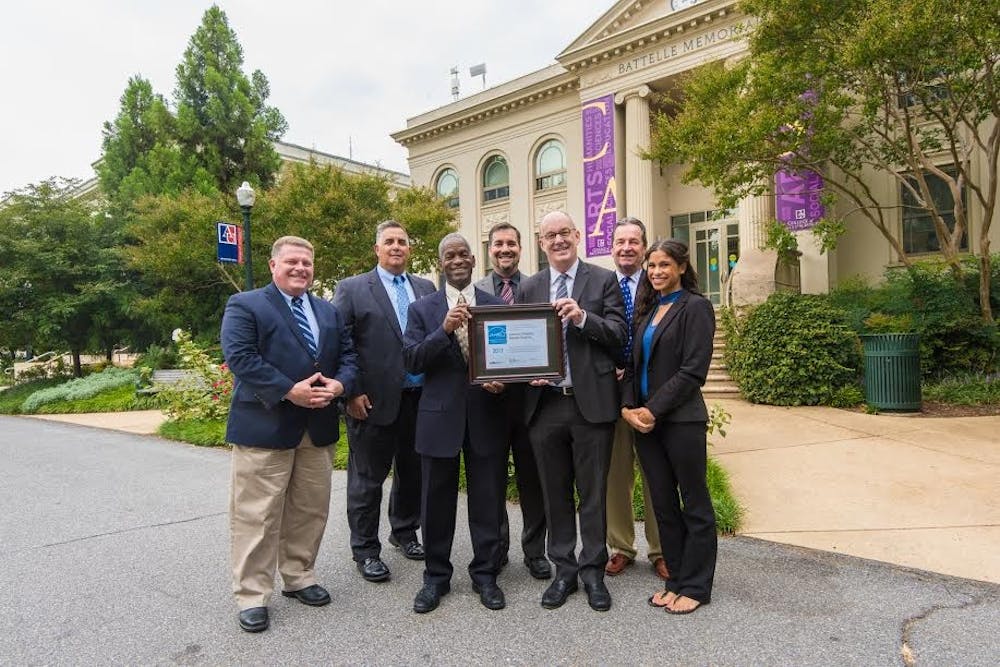American University earned a special certification for energy saving measures last month, an honor that officials hope will inspire students to take more action to shrink the school's carbon footprint.
The Battelle-Tompkins building was awarded AU’s first-ever Energy Star certification by the Environmental Protection Agency this September. In order to be considered for an Energy Star certification, buildings must have an energy score of at least 80 points. Energy scores are calculated by entering energy data into an EPA database.
Battelle-Tompkins received a score of 84 points, which ranks it in the top 25 percent of similar facilities nationwide according to Ruby Tavernier, AU’s utilities outreach program leader.
After the building earned its initial score, the process of gaining the certification lasted for a year and a half. Juan Allen, AU’s energy conservation efficiency manager, said the certification would not be possible without the help of those utilizing the building.
“Most of the changes would be with the occupants and how the building operates,” Allen said. “They are very conscientious of lighting, they turn lights out, they turn equipment off, they utilize fan cooling units which they can turn off when they're not there, they use task lighting as much as possible.”
Since AU is committed to being a carbon neutral campus by 2020, Energy Star and LEED certifications can help the University reach its goals, according to Tavernier.
Tavernier added that community engagement and outreach are AU’s main priorities when it comes to saving energy and becoming a green friendly campus.
“Getting those types of awards gets people to recognize what we’re doing through outreach and articles, and people get excited about it and start participating,” she said.
AU also conducts a campus-wide curtailment, or energy reduction, during breaks and holidays. Staff members manually shut down entire buildings and rooms in addition to shutting down all computer labs and making sure appliances are unplugged.
AU is working with the EPA to get other buildings the Energy Star certification, Tavernier said. However, because of the specifics of the EPA standards, many residence halls can not qualify because they are multi-use and unique. AU is working with the EPA to change these standards, Tavernier said.
Tavernier wants students to know that their actions have a major effect on AU’s carbon footprint, and she said she has studies to prove it.
“If everyone turned their thermostat down one degree, the amount of carbon we could save would be literally metric tons,” Tavernier said. “It's just about being more mindful. The big thing is engaging people and letting them know that they do have an impact in lowering the carbon footprint.”




